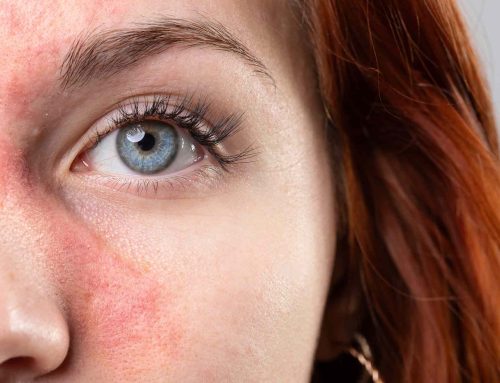August marks Psoriasis Awareness Month, an important time to shed light on this chronic autoimmune condition affecting millions worldwide. At Skin Care Physicians of Georgia, we believe that raising awareness is key to understanding and managing psoriasis effectively, and our own Dr. Cohen has dedicated a large portion of his career to understanding and treating psoriasis. Whether you or a loved one is dealing with this condition, learning about psoriasis can help you navigate its challenges and explore treatment options.
What is Psoriasis?
Psoriasis is a skin disorder characterized by red, itchy, and scaly patches. These patches, or plaques, are most commonly found on the elbows, knees, scalp, and lower back but can appear anywhere on the body. The condition is caused by an overactive immune system that accelerates skin cell production, leading to a buildup of cells on the skin’s surface. What’s more, psoriasis ranges from mild to severe and is often accompanied by discomfort and pain.
Types of Psoriasis
There are several types of psoriasis, each with its unique symptoms:
- Plaque Psoriasis: The most common form, characterized by dry, raised, red skin lesions covered with silvery scales.
- Guttate Psoriasis: Often begins in childhood or young adulthood, presenting as small, red spots on the skin.
- Inverse Psoriasis: Causes bright red lesions that are shiny and smooth, usually found in skin folds.
- Pustular Psoriasis: Appears as white pustules (blisters of noninfectious pus) surrounded by red skin.
- Erythrodermic Psoriasis: A severe form that can cover large areas of the body with a red, peeling rash that can itch or burn intensely.
The Impact of Psoriasis
Psoriasis is more than just a skin condition; it can significantly impact a person’s quality of life. Due to the visibility of their symptoms, many individuals experience emotional distress, low self-esteem, and social anxiety. Furthermore, psoriasis is associated with other health conditions, such as psoriatic arthritis, cardiovascular disease, and depression.
Understanding the impacts is crucial for providing comprehensive care and support to those affected.
Treatment Options
At Skin Care Physicians of Georgia, we offer personalized treatment plans tailored to each patient’s unique needs. Our team of experienced dermatologists is dedicated to staying informed about the latest advancements in psoriasis care to provide the best possible outcomes for our patients.
While a cure for psoriasis does not exist yet, several treatments can help manage symptoms and improve quality of life. These include:
- Topical Treatments: Creams and ointments applied directly to the skin to reduce inflammation and slow skin cell growth.
- Phototherapy: Controlled exposure to ultraviolet light can help reduce symptoms.
- Systemic Medications: Oral or injected medications that affect the whole body are used for more severe cases.
- Biologics: A newer class of drugs targets specific parts of the immune system, relieving moderate to severe psoriasis.
Psoriasis Awareness Month is an opportunity to unite and support those affected by this challenging condition. At Skin Care Physicians of Georgia, we are committed to providing compassionate care and expert guidance to help individuals manage their psoriasis effectively. If you or someone you know is struggling with psoriasis, please get in touch with us to learn more about our treatment options and how we can help.






